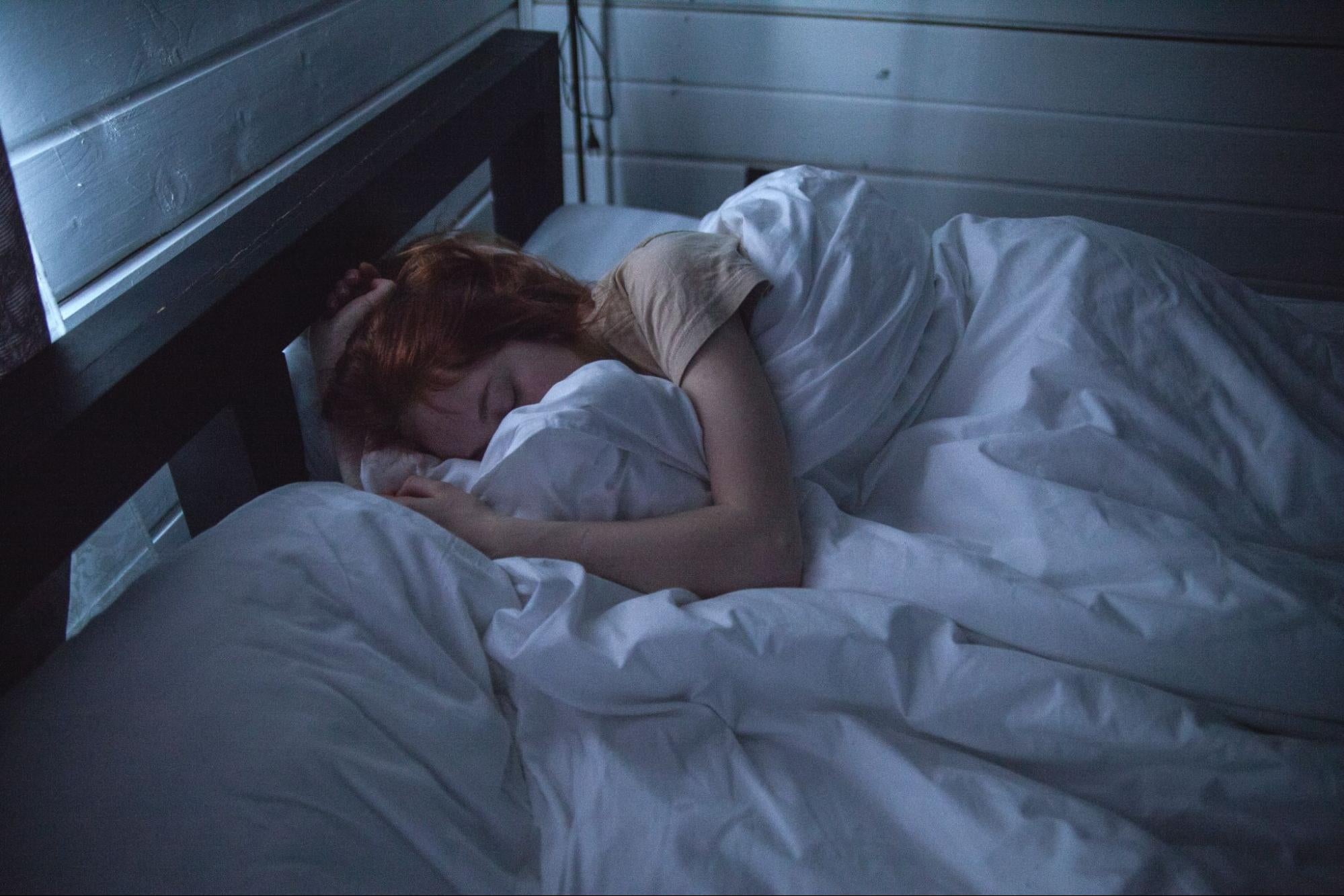Article: How Much Sleep Do I Need? The Answer Might Surprise You!

How Much Sleep Do I Need? The Answer Might Surprise You!
How much sleep do you need? How much sleep does your partner need? How much sleep does your child need? The answer to this question is not as straightforward as you might think. In fact, the amount of sleep that each person needs varies significantly. Most people think that they need eight hours of sleep every night, but that's not always the case. Depending on your lifestyle and health, you might need more or less sleep than you think.
In this blog post, we will discuss the science behind how much sleep we need and what happens when we don't get enough sleep. We will also provide tips on how to get more restful sleep.
Sleep Myths Busted: How Much Sleep is Needed?
There are several misconceptions surrounding sleep. Many of these misconceptions are perpetuated by the media and society. It is important that we bust these myths so that we can better understand how much sleep we need.

Myth 1: Everybody needs 8 hours of sleep
One of the most common sleep myths is that everybody needs eight hours of sleep. This is simply not true. Depending on your age, lifestyle, and health, you might need more or less than eight hours of sleep. For example, young children and teenagers often need more than eight hours of sleep because their bodies are growing and developing. Adults usually need between seven and eight hours of sleep. However, some adults can function perfectly well on six hours of sleep. It is important to listen to your body and see how much sleep you need.
If you find that you are always tired and never feel rested, then it might be a good idea to talk to your doctor about how much sleep you need. They will be able to give you more specific advice.
Can you train your body for less sleep?
There is some evidence to suggest that you can train your body to need less sleep. For example, the US military has a program called the First Term Aviators course which trains pilots on how to function on very little sleep. However, it is important to note that this program is very intense and not suitable for everyone. It is also not clear whether or not this training is sustainable in the long term.

Some people claim that adapting to being awake more while performing at a lower level can lead to long-term sleep deprivation and health problems. So, while you might be able to train your body to need less sleep, it is not clear whether or not this is a good idea.
In general, it is best to listen to your body and get as much sleep as you need. This will help you to function at your best and avoid any health problems in the future.
Myth 2: Powernaps are unhealthy
Another common myth is that powernaps are unhealthy. This is not necessarily true. In fact, there are many benefits to taking a powernap. For example, powernaps can improve your mood, increase your alertness, and boost your memory.
If you find that you are struggling to stay awake during the day, then a powernap might be a good idea. However, it is important to keep the following things in mind:
- Powernaps should be no longer than 20 minutes
- Powernaps should be taken in the early afternoon
- You should not sleep for more than two hours in total during the day
If you follow these guidelines, then taking a powernap can be a great way to improve your productivity and overall health.
Myth 3: More sleep leads to better health
It is often thought that the more sleep you get, the healthier you will be. However, this is not necessarily true. In fact, there is such a thing as too much sleep. Sleeping for more than nine hours per night has been linked to an increased risk of health problems such as obesity, diabetes, and heart disease.
So, while getting enough sleep is important for your health, sleeping for too long can actually be bad for you. It is important to find a balance that works for you.
While it is a complicated aspect to explain, the amount of sleep you need will vary throughout your life:
- Newborns sleep 14–17 hours
- Infants sleep 12–15 hours
- Toddlers sleep 11–14 hours
- Preschoolers sleep 10–13 hours
- School-aged children sleep 9–11 hours
- Teenagers sleep 8–10 hours
- Adults sleep 7–9 hours
- Older adults sleep 7–8 hours
Myth 4: Sleep deprivation could kill you
While sleep deprivation can have some serious consequences, it is very unlikely that it will kill you. In fact, there are no documented cases of people dying from sleep deprivation.
Sleep deprivation can cause a number of problems such as hallucinations, delirium, and degradation of mental health. However, these effects are usually only seen in extreme cases where a person has slept for less than three hours over the course of several days.
In general, sleep deprivation is not something to be taken lightly. However, it is important to remember that the effects are usually only seen in extreme cases. If you are struggling to get enough sleep, then it is best to talk to your doctor about ways to improve your sleep habits.
What are the Factors that Affect how much Sleep do you need?
There are many different factors that can affect how much sleep you need. These include:
- Age:
As you get older, you will generally need less sleep. This is because your body becomes less efficient at repairing itself during sleep. For example, older adults typically sleep for around seven to eight hours per night. Their bodies demand less sleep than younger adults.
- Lifestyle:
Your lifestyle can also affect how much sleep you need. If you have a very active lifestyle, then you might need more sleep than someone who has a sedentary lifestyle. This is because your body needs time to repair itself after physical activity. For example, if you compare an athlete with a desk job, the athlete will likely need more sleep.
- Diet:
What you eat can also affect how much sleep you need. For example, eating a large meal before bed can make it difficult to fall asleep. This is because your body needs time to digest the food. On the other hand, eating a light snack before bed might help you to fall asleep more easily.
- Environment:
The environment you are in can also affect how much sleep you need. For example, if you live in a noisy or light-filled environment, then you might need more sleep than someone who lives in a quiet and dark environment. This is because your body needs to be able to relax in order to fall asleep.
- Medical conditions:
Certain medical conditions can also affect how much sleep you need. For example, people with anxiety or depression typically need more sleep than people without these conditions. This is because their bodies are under more stress and need more time to recover.
- Gender:
Women tend to need more sleep than men. This is thought to be due to the fact that women are more likely to experience insomnia and other sleep problems.
- Pregnancy:
Pregnant women often need more sleep than they did before they were pregnant. This is due to the fact that their bodies are working harder to support the growing baby. They get exhausted easily and need more time to rest.
Make Sleep Priority: How to Improve Your Sleep
Now that you have a better idea of how much sleep is needed and what can affect your sleep, it’s time to start making sleep a priority. Follow these tips to help you improve your sleep habits:
- Cut down on caffeine:
Caffeine is a stimulant that can make it difficult to fall asleep. If you’re struggling to sleep, then try to cut down on your caffeine intake.
- Avoid alcohol before bed:
Alcohol can make you feel drowsy, but it actually disrupts your sleep. This is because it prevents you from reaching the deep, restful stages of sleep.
- Create a bedtime routine:
A bedtime routine can help to signal to your body that it’s time to wind down for the night. This might include taking a bath, reading a book, or doing some stretching exercises.
- Make the bedroom cozy and comfortable:
The environment you sleep in can affect how well you sleep. Make sure to create a space that is dark, quiet, and comfortable. This will help your body to relax and fall asleep more easily.
- Get up and move around during the day:
Physical activity can help to improve your sleep. This is because it helps to tire your body out so that you’re ready for bed at night. Try to get at least 30 minutes of exercise every day.
- Practice meditation:
Meditation can help to reduce stress and promote relaxation. This can be helpful if you’re struggling to fall asleep. There are many different meditation apps and videos available online to follow.
- Talk to your doctor:
If you’re still struggling to sleep, then it might be time to talk to your doctor. They can help to identify any underlying medical conditions that might be causing your sleep problems. They can also prescribe medication or refer you to a sleep specialist.
Creating a calming nighttime routine can significantly improve sleep quality. Along with practices like meditation and digital detox, incorporating Ayurvedic medicine for better sleep can help you fall asleep faster and wake up more refreshed.
The Bottom Line
How much sleep you need varies from person to person. However, most people need between seven and eight hours of sleep per night. There are many factors that can affect how much sleep you need, such as diet, exercise, pregnancy, and medical conditions. Making sleep a priority can help you to improve your sleep habits and get the rest you need. If you’re struggling to sleep, then talk to your doctor for more help.



